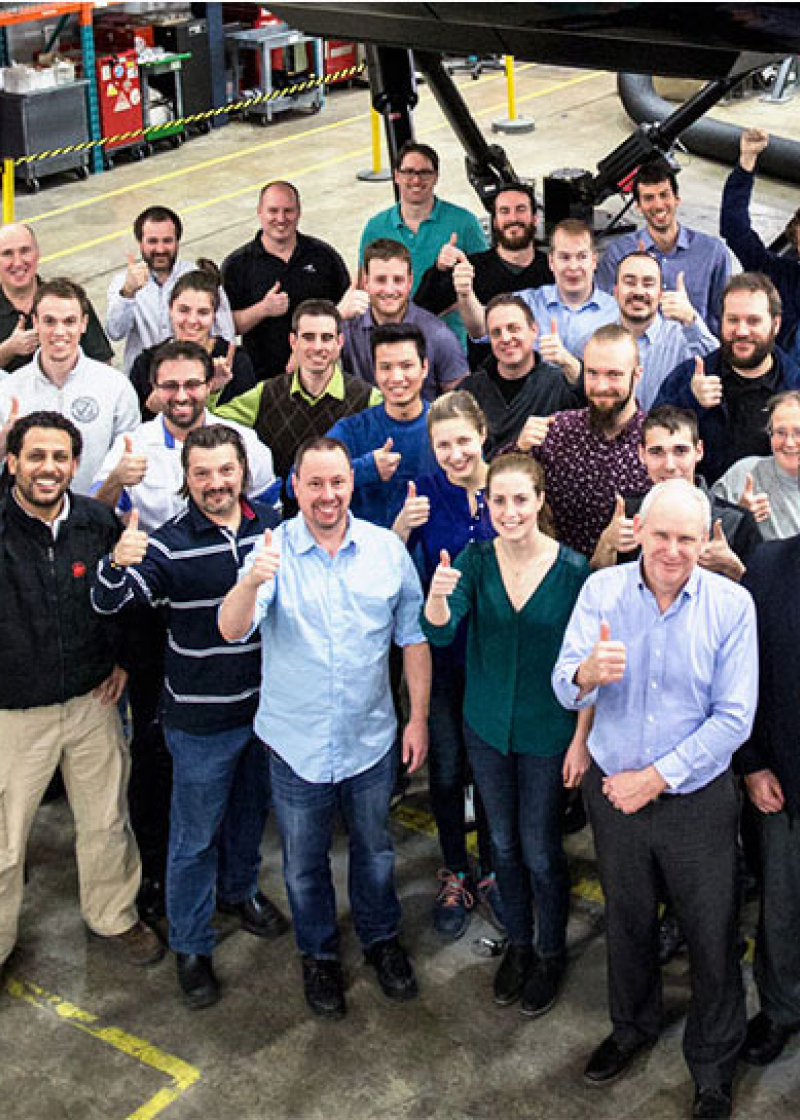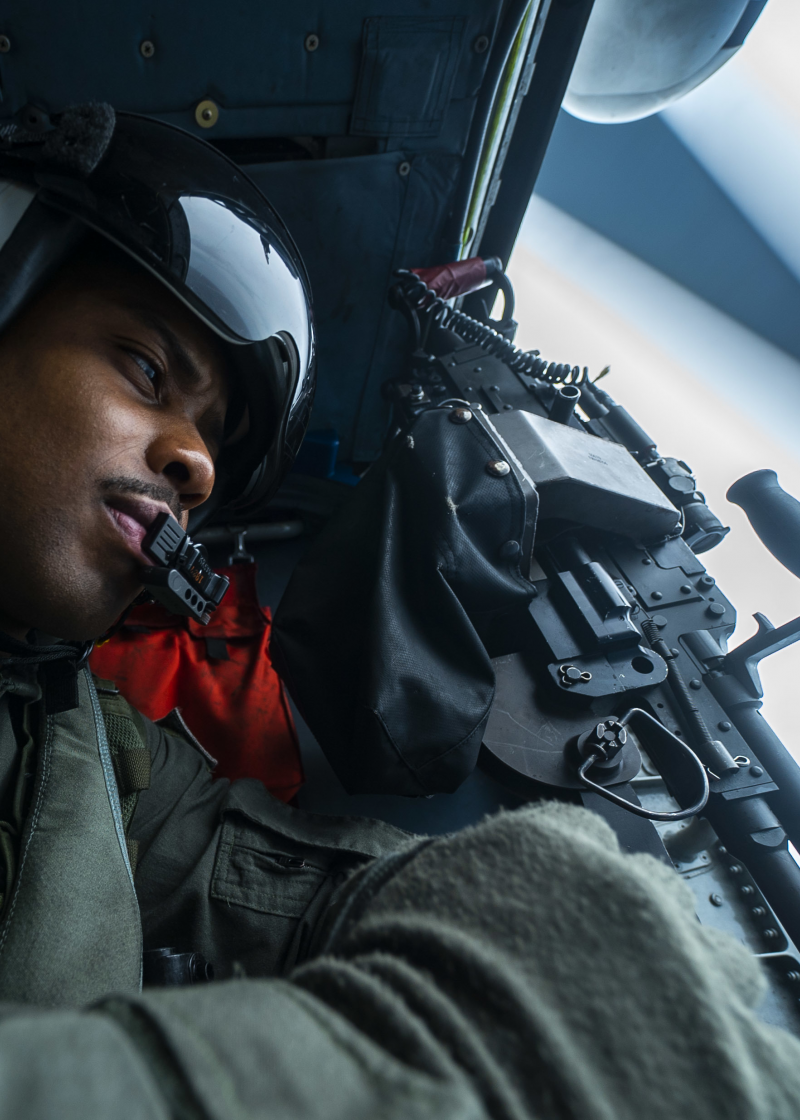The Faculty of Medicine of Université de Montréal and CAE Healthcare celebrated today the first year of operations of the faculty's simulation training centre, the Centre d'apprentissage des attitudes et habiletés cliniques (CAAHC).
The CAAHC simulation centre is one of the largest simulation-based healthcare training centres in Canada. It is located at the Faculty of medicine of Université de Montréal and is managed by CAE Healthcare as part of a partnership. It is equipped with several multi-purpose training rooms and high fidelity manikins that enable simulation of various scenarios of real medical situations. Thus, participants are better prepared to act in an optimal way during critical situations while reducing the risks inherent in the practice of medicine.
"The Faculty of Medicine of Université de Montreal is the first institution in North America to integrate simulation-based learning into its medical training program," said Dr. Jean Rouleau, Dean of the Faculty of Medicine of Université de Montréal. "Our students will all benefit from training on equipment that is perfectly adapted to our educational methods and to the realities of today's medicine. Since we opened the centre a year ago, approximately 1,000 students have visited the centre each month to develop clinical skills. The centre offers an ideal learning environment for a generation of individuals that has grown up with new technologies."
The mission of the centre is to enable students to acquire technical competencies, attitudes and skills, and to promote teamwork, communication, empathy and work ethics. The centre includes 12 rooms which can be accommodated to simulate different environments: a hospital, an ambulatory environment, a private medical practice, an external clinic, an emergency room or rooms for Objectively Structured Clinical Examination (OSCE). The centre also includes a large room with six beds, three clinical ambulatory, private practice or community-based type examining rooms and a room that replicates a high fidelity operating room with a human patient simulator or a critical care room.
CAE Healthcare has assembled a team at the centre, including simulation technology specialists and medical simulation instructors. This team supports the Faculty of Medicine and delivers courses to their students using medical simulation equipment. CAE Healthcare's team is also responsible for delivering specialized training courses such as advanced cardiac life support (ACLS), to residents and other members of the medical community.
The Faculty of Medicine of Université de Montréal has developed and adapted its programs to include the centre's new simulation equipment. It has also developed training sessions adapted to healthcare professionals who work in various sectors of the healthcare system, in particular in cardiopulmonary resuscitation.
"We are proud to partner with the Faculty of Medicine of Université de Montréal and have the opportunity to use our experience in managing aerospace training centres in the field of healthcare," said Guillaume Hervé, President of CAE Healthcare. "Simulation enables physicians and healthcare professionals to practice certain procedures or operations in a safe environment which ultimately results in reduced risks to patients."
For more information about the centre: www.caahc.org
About the Faculty of Medicine of Université de Montréal
The Université de Montréal Faculty of Medecine has 2000 professors and researchers on staff. Over 1600 are clinical professors working within a wide network of healthcare facilities. As the largest medical school in Canada, and third largest in North America, the UdeM Faculty of Medicine trains 6000 students in all three levels of higher education each year. A leader in innovative teaching techniques, the Faculty was the first school of its kind to offer a complete medical training program outside an urban centre at its facility in the Mauricie. The UdeM's Faculty of Medicine has also made it mark in research. Not only does it receive numerous research grants (the second most in Canada), the Faculty also has 60 Canada Research Chairs and 30 endowed research chairs.
About CAE Healthcare
CAE Healthcare is a wholly-owned subsidiary of CAE (NYSE: CAE; TSX: CAE). CAE Healthcare is applying CAE's training, simulation and modelling know-how from aviation to bring best practices to the healthcare industry. It is developing cutting-edge learning tools and innovative simulation solutions for healthcare education with the objective of offering healthcare professionals the opportunity to learn using multiple simulation platforms before testing their skills on patients. The ultimate goal is to improve clinical competence and expertise and enhance the quality and safety of patient care and the efficiency of healthcare systems. www.cae.com/healthcare
CAE is a world leader in providing simulation and modelling technologies and integrated training solutions for the civil aviation industry and defence forces around the globe. With annual revenues exceeding C$1.6 billion, CAE employs more than 7,000 people at more than 100 sites and training locations in more than 20 countries. The company has the largest installed base of civil and military full-flight simulators and training devices. Through its global network of 29 civil aviation and military training centres, it trains more than 75,000 crew members yearly. CAE also offers modelling and simulation software to various market segments and, through CAE's professional services division, assists customers with a wide range of simulation-based needs. www.cae.com
-30-
High resolution downloadable photos of the event and of the centre will be available at www.cae.com/photos
Contact at Université de Montréal:
Sophie Langlois, Director, Media Relations,
(514) 343-7704, [email protected]
Contacts at CAE:
Nathalie Bourque, Vice President, Public Affairs and Global Communications,
(514) 734-5788, [email protected]
Investor relations: Andrew Arnovitz, Vice President, Investor Relations and Strategy,
(514) 734-5760, [email protected]







